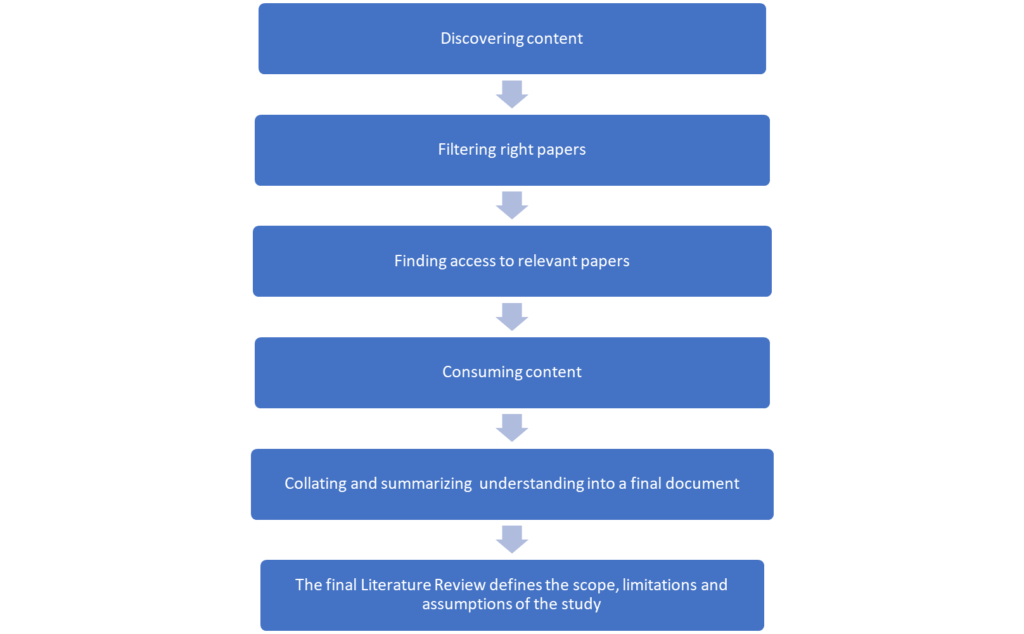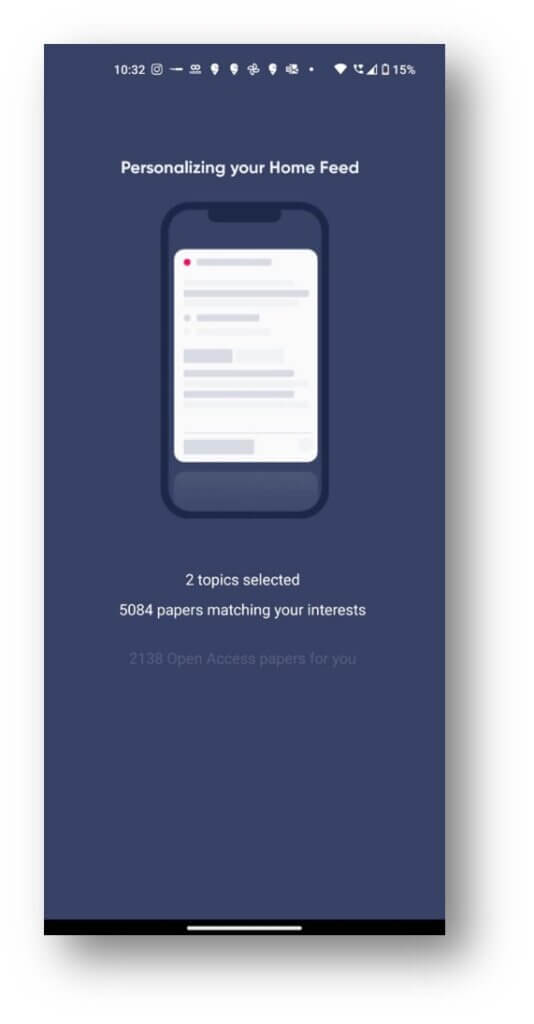
A thorough and exhaustive literature review often forms the backbone of substantive, sophisticated research. However, many researchers are unsure how to find research papers and struggle with writing a good literature review. In this article, we highlight the importance of a strong literature review, explain the literature review workflow, and show you how R Discovery can help simplify this process for researchers.
Importance of writing a good literature review
Literature review helps to gain a quick understanding of new research areas: Writing a good literature review means summarizing main themes and established understanding in a research paper along with any contradictions or gaps that may require more inquiry. This is why most researchers who want an overview of a particular subject or topic before starting their research rely on earlier literature reviews in the field.
Literature review helps identify gaps in existing research: A literature review is most often the first step to any meaningful research work. Even before any actual research or writing can start, a researcher must know how to find research papers and do an exhaustive survey of existing literature to identify research gaps and come up with a novel topic for their research study.
Literature review is a must have for grant applications: In most cases, a comprehensive literature review report is an essential attachment with grant applications. Writing a good literature review helps exhibit the author’s definitive grasp on a particular topic, highlights research gaps in existing literature, and provides context and relevancy of the proposed research work.
How to write a literature review?
Writing a good literature review that is both comprehensive and thought-provoking is usually a daunting and time-consuming task. It encompasses within it several sub-steps, from knowing how to find research papers to identifying and reading the most relevant literature to understanding and summarizing the key themes. All these steps need to be completed in order to write a compelling literature review.

How R Discovery helps you at every step of writing a good literature review
Each of the steps in the process of writing a good literature review comes with its own challenges, but the biggest question most early career researchers and PhD students face is ‘How to get started?’.
Discovering the right content to focus on can be far more complicated and tiresome than it sounds. Most don’t know where to look or how to find research papers to read. A 2019 study suggests that researchers typically spend more than 4 hours a week finding the right research papers and a little over 5 hours reading them, with only half of these being useful.1
This is where we come in!
R Discovery hosts more than 100 million journal articles and preprints today, acting as a one-stop destination for researchers to find the most relevant content for their literature review. We have partnered with global research content aggregators and publishing houses – CrossRef, Unpaywall, PubMed, Pubmed Central, IOP, Taylor & Francis, Springer Nature, New England Journal of Medicine, Karger, Journal of American Medical Association, British Medical Journal, SAGE, Underline Science, and arXiv to name a few – which ensures we are constantly adding to our library of research content.
Filtering the right papers from the research available online is often difficult for early career researchers. Since they may not have complete context of their research area, they could find it difficult to enter the correct keywords or know the best keywords to find relevant research papers.
R Discovery’s customized user journey and AI-generated reading suggestions, basis their selected research area and keywords, allow researchers to progressively narrow down their choice of topics.
Users can also search for new research papers by seeding sample milestone papers and extracting topic suggestions from the same. Researchers using R Discovery can also find relevant papers by looking up other papers published in the same journal as your shortlisted articles or preprints.
Finding the right paper is only half the battle won. After all the time and effort put into finding the right research paper, researchers realize that it is behind a paywall. R Discovery has you covered by supporting around 1,200 universities around the world and allowing users institutional access to paywalled articles. This means users can read the full text of shortlisted papers behind paywalls with the help of their university’s library affiliations. R Discovery also informs users if a paper is open access, with researchers being able to view the full-text of the more than 40 million open access journal articles available on the app itself.
On R Discovery, users can also carry out multiple literature reviews simultaneously with the help of multiple reading lists. Users can now create individual research reading streams for specific subject areas and topics, which allows for more effective reading instead of one consolidated search.
Consuming content of all relevant papers is yet another time-consuming manual effort, as it entails skimming though hundreds of research papers, each comprising anywhere between 10 and 100 pages. Most researchers we spoke to, shared having to go through hundreds of research papers when writing a good literature review (especially if they are not working on a very niche topic).
R Discovery understands the importance of time and more productive reading, which is why it provides smart summaries for articles. With AI-generated summaries and highlights for around 6 million papers in our content bank, users can quickly assess a paper’s relevance without spending time on reading the full text. This significantly reduces the time it takes for users to understand the themes and general agreements/disagreements in their field of research basis current literature.
And the best part is that R Discovery, and all these helpful features, is completely free to download and use! So, if you are a researcher and struggling with writing a good literature review, you know where to look. Here’s a quick guide on getting started on R Discovery.
Creating compelling literature reviews – Getting started on R Discovery
R Discovery has enabled a customized workflow to help users writing a good literature review, who may be trying to figure out the universe of papers they should consider for their review. New users can select this option during their onboarding journey, which is explained below.
1. User selects the option “Find papers for Literature Review” during the onboarding flow.

2. User selects their research area and topics they are interested in to create a custom feed.
3. User gets a list of papers relevant to their topics of interest on their personalized reading feed.


4. Users can bookmark papers they like and add them to their literature review reading lists.
5. Users can download one or more paper from their reading list in an excel format. They can also export the article into reference managers like Zotero and Mendeley.
It’s as simple as that. With custom feeds and smart literature review reading feeds, R Discovery is helping researchers save time and be more effective when writing a good literature review for their research topic.
And we’re not done. R Discovery is committed to continually improving the experience for researchers, so if you like our features or think we can do something better, drop in an email to discovery@researcher.life.
References:
- Trust in research. Research Survey by Elsevier and Sense About Science. June 2019 https://www.elsevier.com/__data/assets/pdf_file/0011/908435/Trust_evidence_report_summary_Final.pd











